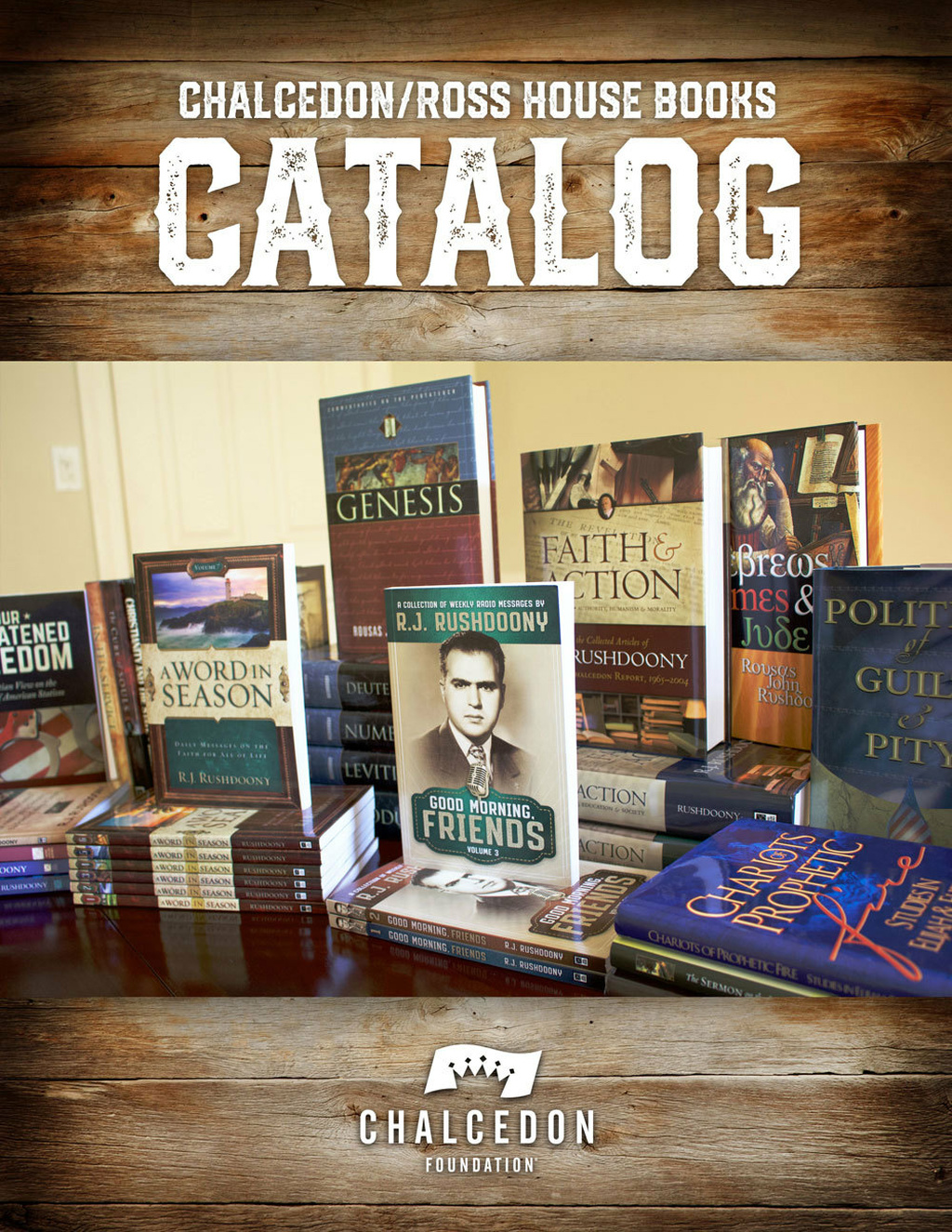
The Preservation and Perpetuation of R.J. Rushdoony’s Writings
One of the most common reactions people have to my father’s writing is how prescient it was. I can’t tell you how many times I have heard people say, “I can’t believe he wrote this fifty years ago. It reads as though it was written yesterday.”

- Mark R. Rushdoony
One of the most common reactions people have to my father’s writing is how prescient it was. I can’t tell you how many times I have heard people say, “I can’t believe he wrote this fifty years ago. It reads as though it was written yesterday.” Very little of what he wrote now seems “dated” because he was addressing the moral degradation of the West and predicted its progressive failure, all the while offering God’s law and a self-conscious faithfulness to the lordship of Jesus Christ and His Kingdom as the only means of “reconstructing” a godly social order.
My father spoke of modern man’s faith in revolution, which he saw a originating in Darwin’s belief in the regenerative power of chaos and random change. Conserving the status quo was to prevent the biological advance of all nature. Karl Marx rightly saw in Darwin a justification of the violent revolution he advocated. A somewhat abstract debate has emerged on social media of late as to whether Western socialists are truly Marxist or not. What is more important is that they are Darwinists as so have faith in the cathartic nature of destruction. Good comes from destroying the bad, they believe.
What is bad, then? You see, modern man must redefine good and evil. That is why “political correctness” has become a new moral ethic, defined by self-appointed reformers of all things. Even the concept of bad and evil are merely borrowed from Christianity, however. The language is necessary to condemn and punish all that is contrary to the revolution they seek. Selective indignation at self-defined evil attributed to others is not morality, however, but self-righteousness.
When by father passed away in 2001, I knew my most important responsibility was the preservation and perpetuation of his writings. Why? I felt then, and still feel, that he most clearly saw and warned the church of the direction of our culture, their failure which had allowed it, and the way forward. I believe these are issues the church must still confront and I want his words available when it is ready to listen.

- Mark R. Rushdoony
Mark R. Rushdoony graduated from Los Angeles Baptist College (now The Master’s College) with a B.A. in history in 1975 and was ordained to the ministry in 1995.
He taught junior and senior high classes in history, Bible, civics and economics at a Christian school in Virginia for three years before joining the staff of Chalcedon in 1978. He was the Director of Chalcedon Christian School for 14 years while teaching full time. He also helped tutor all of his children through high school.
In 1998, he became the President of Chalcedon and Ross House Books, and, more recently another publishing arm, Storehouse Press. Chalcedon and its subsidiaries publish many titles plus CDs, mp3s, and an extensive online archive at www.chalcedon.edu. His biography of his father will be published later this year (2024).
He has written scores of articles for Chalcedon’s publications, both the Chalcedon Report and Faith for all of Life. He was a contributing author to The Great Christian Revolution (1991). He has spoken at numerous conferences and churches in the U.S. and abroad.
Mark Rushdoony has lived in Vallecito, California, since 1978. His wife, Darlene, and he have been married since 1976. He has four married children and nine grandchildren.